Basil leaves is an herb of historic significance. It has been a part of dietary and medicinal practices since ancient times, thus leaving no doubt in our minds about its beneficial nature. The sweet and pungent smell of basil is quite well known to all, and so are its culinary uses. But, did you know that basil contains a rather monumental quantity of vitamins (A, K, and C), thus making it a potent source for antioxidants? Furthermore, being high in minerals such as magnesium, iron, potassium, and calcium, only tends to accelerate its beneficial qualities in one’s health. Let’s take a look at some of the advantages that you will benefit from if you add basil leaves into your meal plan.
1. It Is Anti-Inflammatory In Nature
The first benefit of basil leaves that we have to mention is its ability to reduce the inflammatory response of the tissues. Some of the essential oils present in basil leaves, namely citronellol, eugenol, and linalool, have enzyme inhibiting properties that makes them a great remedy for tackling inflammation.
Related Reading:
Anti-Inflammatory Foods: List Of Foods That’ll Help You Fight Inflammation
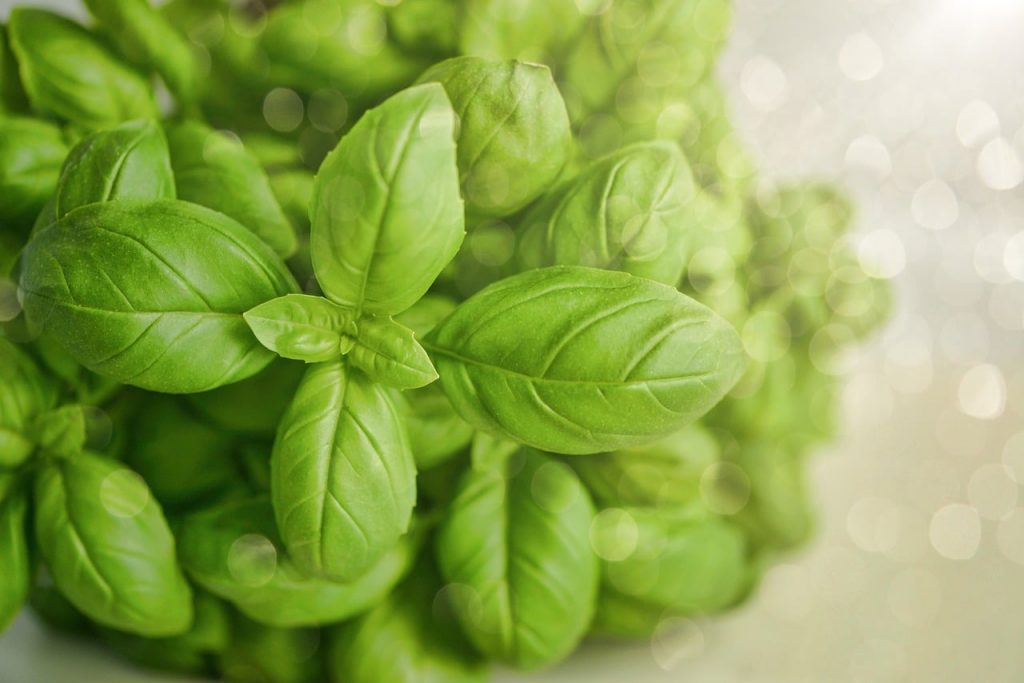
2. Loaded With Antioxidants
With a variety of antioxidants present in it, the consumption of basil can quite impressively aid in reducing the free-radical activity. The free oxygen atoms, which are also known as free-radicals, damage the healthy cells by exerting oxidative stress over the cell walls while combining with them. An antioxidant-rich diet, however, increases the concentration of antioxidants, which combines with the free-radicals and lowers the risks of cell damage.
3. Maintains Blood Glucose Level
With a low glycemic index, the ingestion of basil leaves can turn out to be quite beneficial for lowering the absorption of sugar by the blood, which makes it a great ingredient for people suffering from diabetes. Furthermore, the helpful oils present in these leaves help in deteriorating the ever-rising symptoms of diabetes.
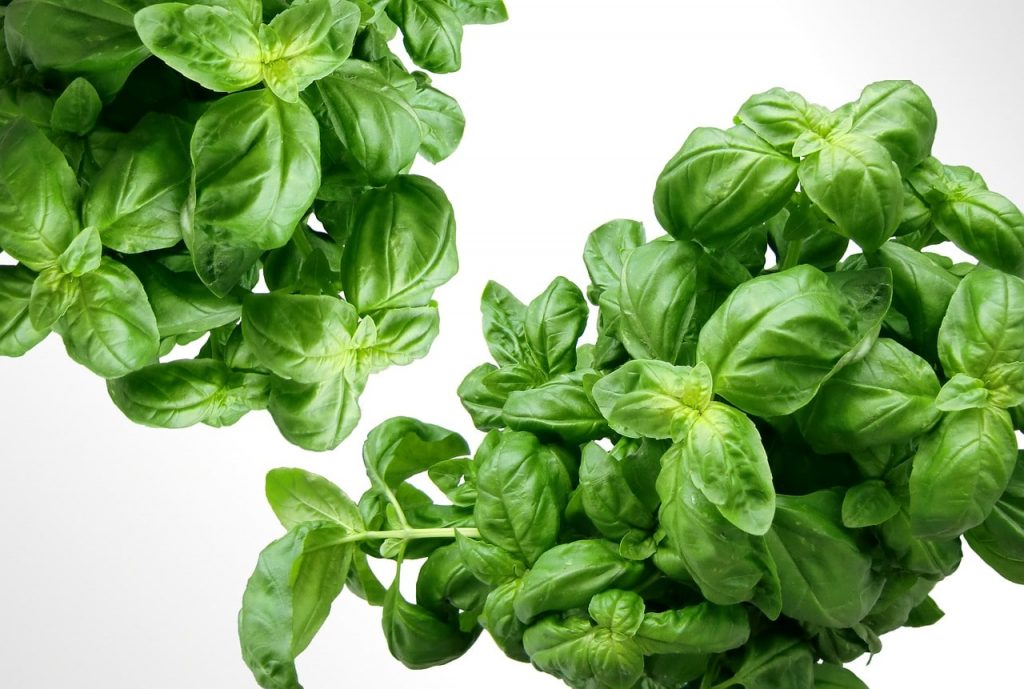
Also Read: Diabetes Diet: What To Eat To Manage Blood Sugar And Keep Diabetes In Control
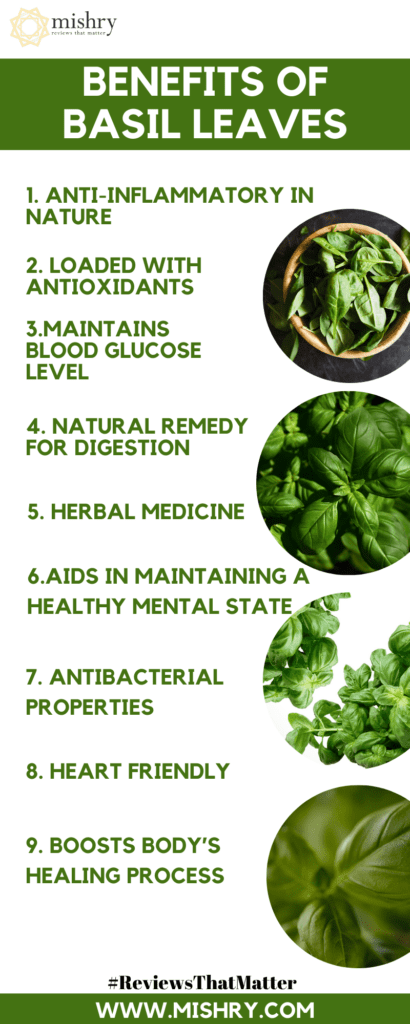
4. Aids In The Fight Against Cancer
Again, thanks to the oils present in this plant-based herb, the unwanted growth of cells can be prevented. Cells are considered to be the building block of life. When cells get old or damaged, they die out and are replaced by new cells. However, in the case of a genetic change, these cells start to grow uncontrollably, which may result in the formation of a tumor. Thus, by lowering the risk of the occurrences of tumors due to the uncontrolled growth of the cells, basil leaves can be quite effective in the fight against cancer.
5. Basil Leaves Are Natural Adaptogens
Adaptogens are the most common part of herbal medicinal practice. They are usually responsible for maintaining a healthy balance of the body’s internal physical as well as chemical processes. Basil is one of the seven adaptogenic herbs that help in the lowering of stress, prevention of skin diseases, and prevention of hepatic disorders.
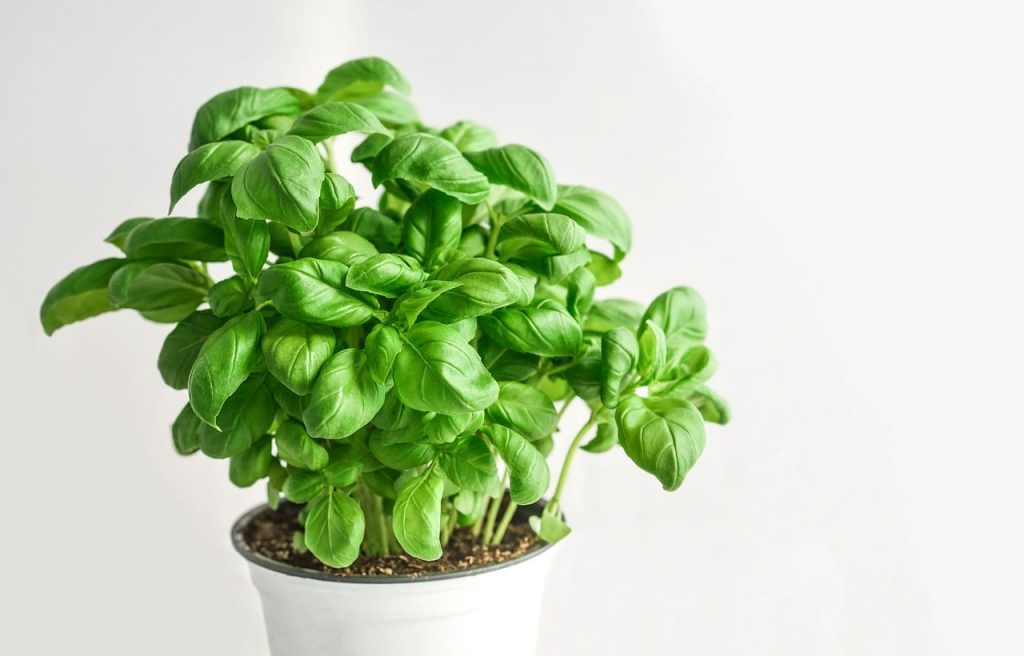
6. A Natural Remedy For Digestive Issues
A volatile compound known as eugenol, which is present in basil, is quite popularly linked with its benefits regarding the safekeeping of one’s digestive system. It achieves this goal by killing off the bacteria such as salmonella and listeria. Furthermore, it also prevents other digestive issues such as diarrhea, stomach pain, bloating, nausea, and cramping.
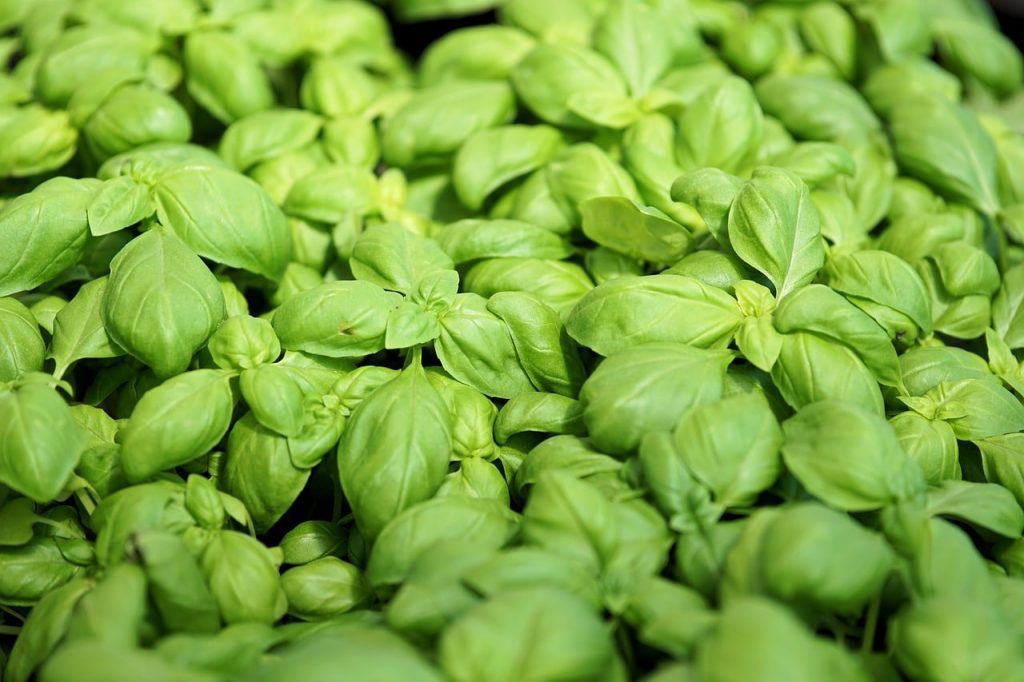
7. Aids In Maintaining A Healthy Mental State
As an adaptogenic herb, the consumption of basil leaves helps with the reduction of both stress and anxiety, thus by allowing the body to easily adapt under stressful conditions, this herb helps in boosting one’s mental health. But, apart from its benefits on one’s mindset, the consumption of basil leaves also helps in the improvement of one’s physical stress, thus increasing endurance.
8. Known For Its Antibacterial Properties
Another popular benefit of basil leaves is that it protects against harmful bacteria. It helps inhibit bacterial growth. One such study was done on patients suffering from infections caused by the strains of E. coli and other bacteria. However, when pitted against these bacteria, basil showed promising results as it inhibited their growth and removed the symptoms as well.
Reference: https://www.ncbi.nlm.nih.gov/pubmed/23921795
9. Heart Friendly
Basil leaves are also known for promoting one’s cardiovascular health. Thanks to its antioxidant and anti-inflammatory properties, this herb can help in that proper contraction and relaxation of the blood vessels used for the transportation of the blood. This property hence allows it to maintain a proper blood pressure along with lowering the risk of high cholesterol, as a healthy blood pressure often results in the lower accumulate of bad-cholesterol along the inner blood vessel walls.

10. Fastens Body’s Healing Process
Basil leaves are often used in Ayurveda to heal and protect the wounds. The extracts from this herb are responsible for boosting the healing process as its consumption often leads to the formation of platelets, which further aids in the clotting of the blood.
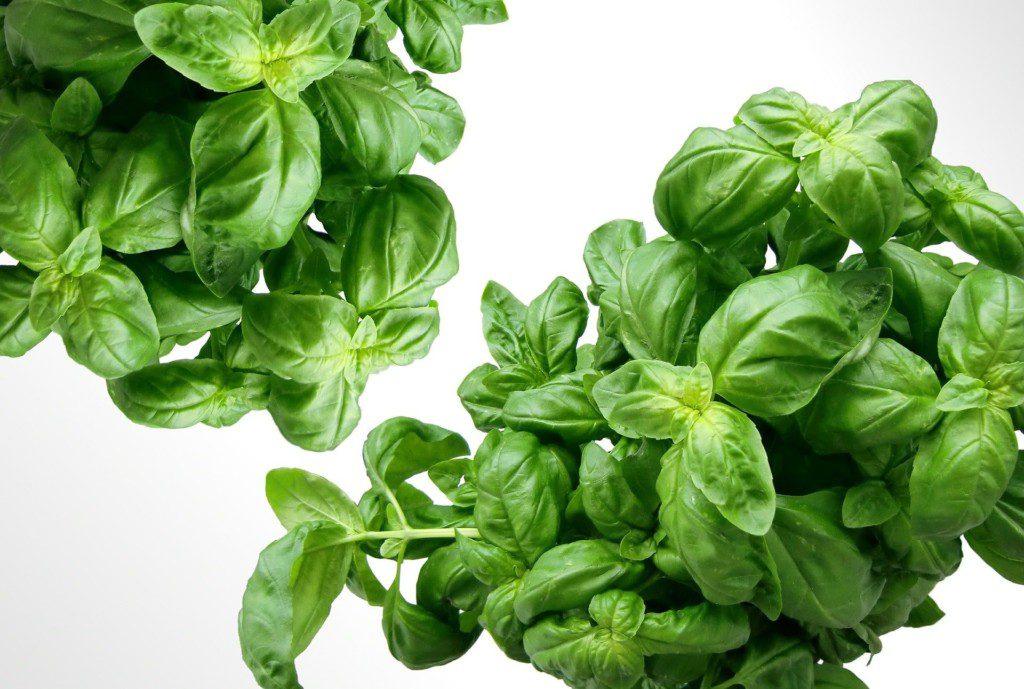
Related Reading In Food Benefits
Green Peppercorn: 5 Popular Benefits | Side-Effects | Preservation
Fenugreek Leaves For Cholesterol And Diabetes
Benefits Of Green Tea | 19 Incredible Reasons To Start Having Green Tea
10 Amazing Benefits Of Rosemary Oil: From Immunity To Depression
Table of Contents
Uses Of Basil Leaves
Now that we have discussed the various benefits linked with the incorporation of basil leaves into one’s diet, it only makes sense for us to discuss its various other uses around the house, which could thus increase its efficiency as a health food. So, without any further delay, here are some of the uses that can be associated with basil leaves:
1. For Medicinal Use
This could be characterized as one of the most popular and common uses of basil leaves. Basil leaves have been an elemental part of natural medicinal traditions throughout history. It is known for aiding with digestion, prevention of infections, and maintaining a perfect balance of both physical and mental health.
2. Used For Culinary Purpose
Apart from evidently being a greatly beneficial herb, basil leaves can be used for its grassy taste and pungent aroma, which could be further used to enhance the overall taste of a dish. One of the most popular culinary uses of basil leaves includes its use as a salad dressing. Moreover, dried up basil leaves can be added to almost every dish, and its addition of flavor cannot be replicated by any other herb.
Basil Leaves: Precautions
Though mostly considered as a safe medicinal herb, basil leaves are often considered to be unsafe for the consumption of children or women who are pregnant. This is because the essential oils present in these leaves are quite concentrated, thus requiring special precautions. Some other side-effects of basil include low blood sugar level, and thick blood (due to platelet formation). All of these facts make it clear that the consumption of basil must be appropriately managed and controlled. Unhealthy consumption of this natural herb might just not be as beneficial as you thought.
Where To Find Basil Leaves?
This is the part that you don’t have to worry about. Basil leaves can be easily bought at the nearest grocery store, or it can also be home-grown. If you have a great demand for this herb, it would be more preferable for you to grow it yourself, or you also buy it in bulk to save time and money.
Everything considered, the overall statistic regarding basil only reveals its beneficial identity. When eaten in a regulated and controlled manner, there could be no other rival herb that provides you with the same amount of benefits in such a short time. So, there is no point in waiting, the addition of these leaves is your first step towards a healthy lifestyle.


